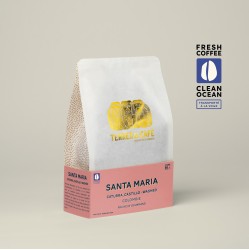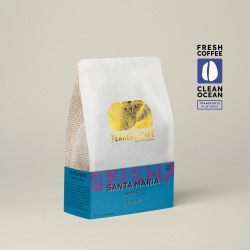Terres de Café is committed to sailing transport thanks to its partners BELCO and TOWT.
At the end of 2024, the first coffees from Colombia and Brazil reached the port of Le Havre and will be available from January 2025. From now on, all coffees from these two origins will be transported by sail. By 2026, 70% of Terres de Café's volumes will be transported this way, and 100% by 2030.
This is the missing piece in offering/guaranteeing traceable, sustainable coffee.
“The transport of goods by sail is not a utopia, but a reality, supported by innovations that make it possible to consider the power of sail as a serious alternative in terms of speed, storage and price.
With vessels like TWOT's carrying 900 tonnes of cargo per crossing, sailing transport is changing dimension.”
Christophe Servell, founder of Terres de Café
On October 24, 2024, the Anemos, the world's largest sailing cargo ship, 81 m long with 3,000 m2 of sail and 1,200 tonnes of capacity in its holds (500 containers), docked at Quai du Cameroun in Le Havre.
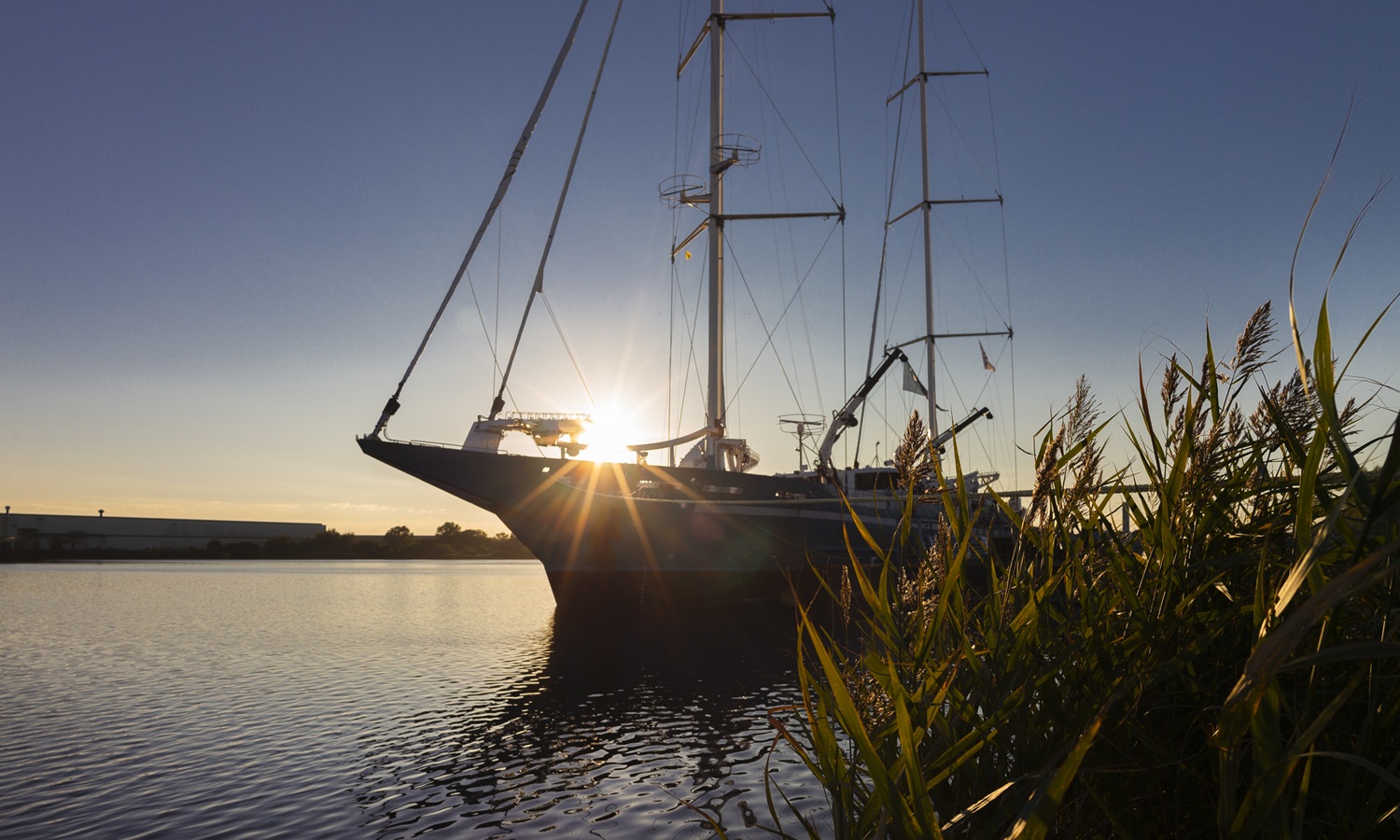
October 24, arrival of the Anemos in the port of Le Havre. Crédit : Fabrice Leseigneur
In mid-November, the sister ship Artemis left the Brazilian coast. Six more equivalent vessels will follow in 2025.
Thanks to a partnership between green coffee importer Belco and French shipowner TOWT, Terres de Café can look forward to importing all its coffees by sail by 2030. A drop in the ocean of traditional freight, responsible for 16% of global freight emissions (source IPCC 2022), but a major step forward for the specialty coffee sector.
Sailing, the future of specialty coffee
This mode of transport offers considerable advantages. First of all, the quality and freshness of the coffees, thanks to a sailing time divided by 2, i.e. 20 days on a direct route, and storage in ventilated holds maintained at 20°c. Traceability, inseparable from quality, is also a major criterion for Terres de Café, which masters the coffee value chain from sourcing to roasting and distribution. While conventional freight is highly opaque, and no information on actual transport conditions is available (duration, route, number of stopovers and on-board conditions), TOWT brings transparency by sharing all this data.
In addition to the environmental benefits of reducing CO2 emissions and noise pollution, and preserving the oceans, there are the economic advantages of independence from fossil fuels and freight rates, as well as the social benefits, since the Anemos flies the French flag and its crew benefits from employment contracts governed by French labor law.
Finally, the cost is €1/kg, or 25 cts for a 250gr packet.
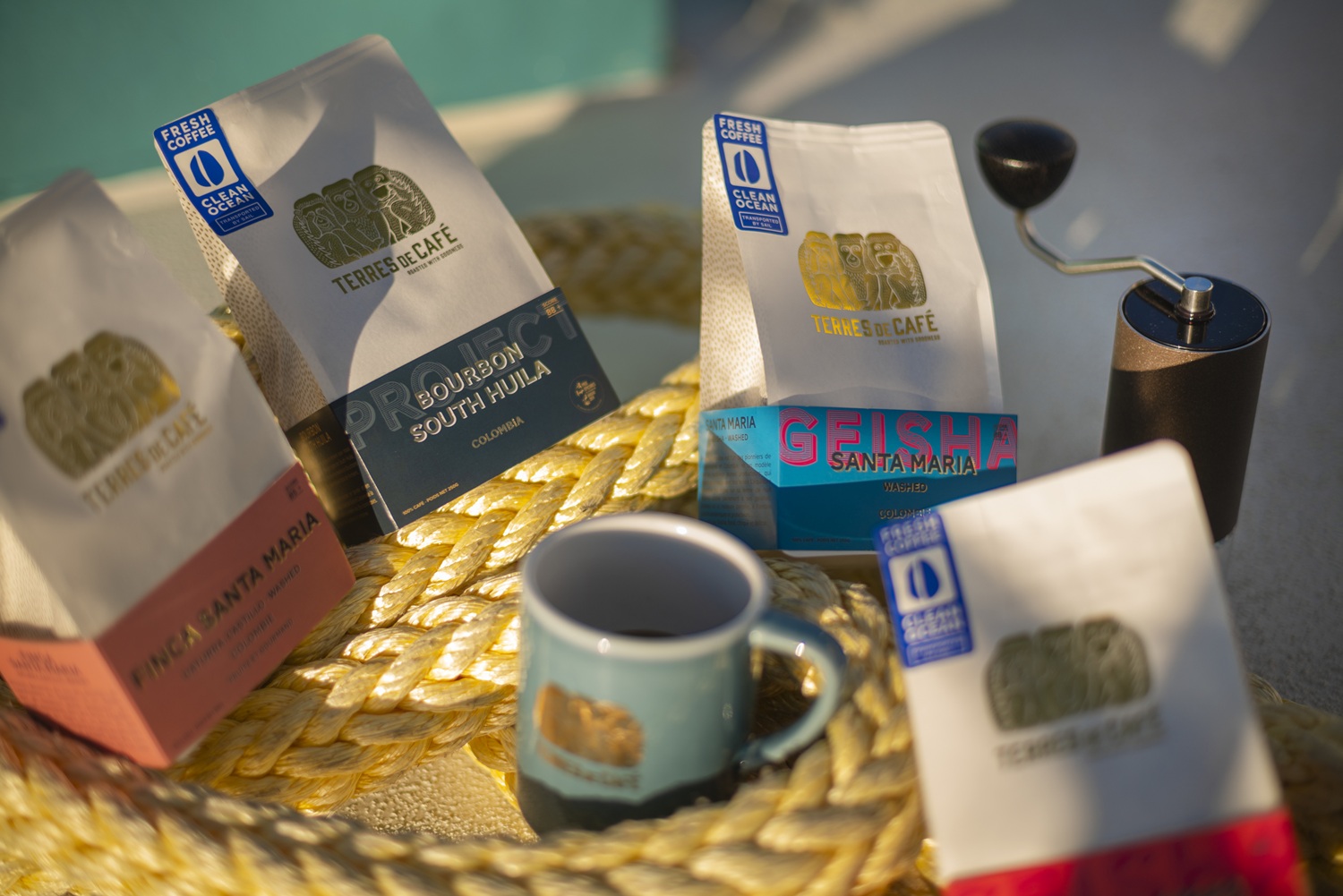
Our Colombian coffees now transported by sail. Credit : Fabrice Leseigneur
This project, initiated by TOWT, a French shipowner founded by Guillaume Le Grand and Diana Messa, offers a new dimension to sailing transport.
The next steps in decarbonization aim to improve transport both upstream and downstream of shipping. Upstream, in producer countries such as Colombia, rail appears to be a viable solution for reaching the port of Santa Maria, and downstream, river transshipment on the Seine for delivery to the Paris region.
Full Farm Traceability (FFT), ever greater transparency
At the same time, Terres de Café is continuing to strengthen traceability in producer countries by setting up, in association with Belco and CIRAD, global sustainability audits of partner farms based on numerous criteria (profitability, biodiversity, territorial social balance), taking into account local specificities (culture, standard of living, etc.).
From the second half of 2025, the first results of these assessments will be visible on coffee packets, in the form of a score, and details of the assessments will be available for consultation and verification on the website. This tool offers consumers a more detailed view of the way in which coffees are produced, complementing traditional labels.
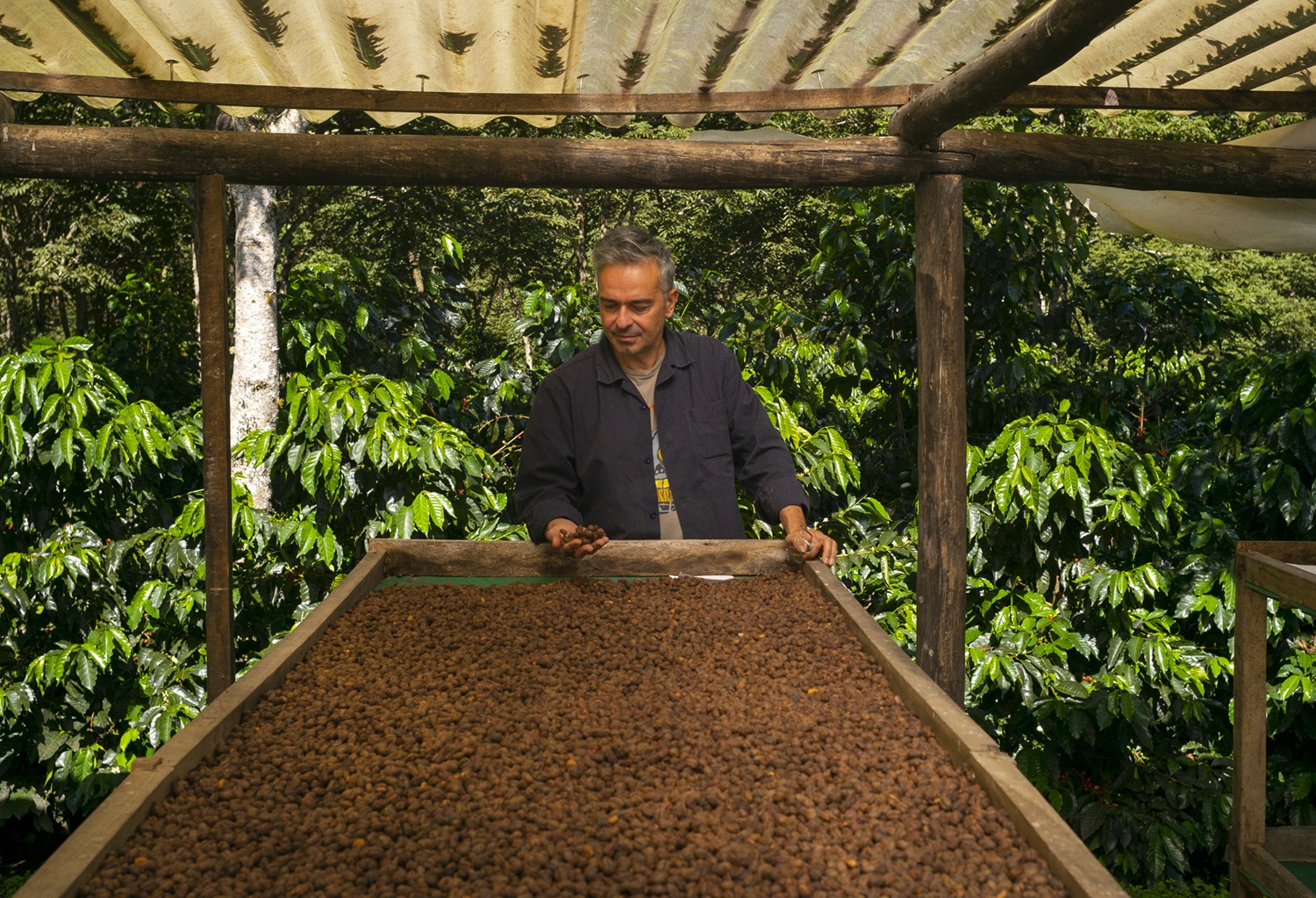
Christophe Servell on a coffee sourcing trip to Ecuador, at Finca Soledad. Credit: Fabrice Leseigneur

